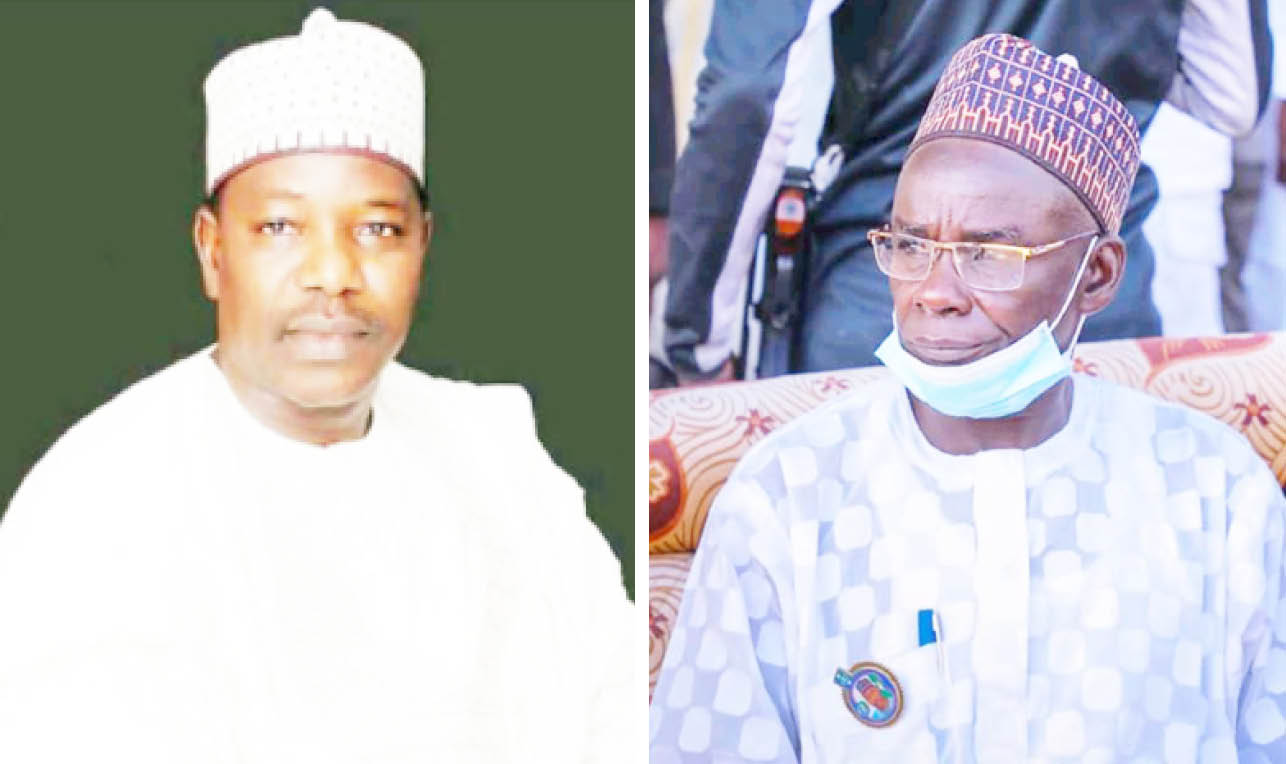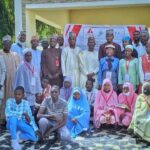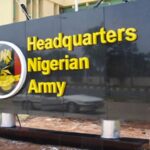The engagement of university professors in partisan politics at the national, state and local government levels tends to be low in Borno State. This is because some very capable lecturers have different views of governance and politics. It is also because electioneering is capital intensive, as well as characterised by mindless thuggery and rigging.
However, against all odds, a professor of banking and finance from the University of Maiduguri, Adamu Garba Alooma and his colleague from the Faculty of Education in the same university, Professor Ibrahim Bukar, contested and won the chairmanship position of Damboa and Gwoza local government councils respectively.
- Nollywood movie “Voiceless” receives 15 nominations at Universal movie awards
- Senator Moro urges safe rescue of Vanguard reporter
The two professors said they were driven by the urge to provide effective leadership and ensure peaceful coexistence in the insurgency-stricken areas.
While a greater number of the electorate value experience in political offices, others are of the view that qualification also matters, thus, academics are beginning to fill the void left by local politicians.
Incidentally, the economy and infrastructure of the two local government areas have been badly damaged by insurgency, and both returnees and local administrators are spending much of their time trying to pick up the pieces.
In Gwoza Local Government Area, for instance, inhabitants of five communities, including Gwoza, Pulka, Ngoshe, Izge and Limankara, who lived in other places as a result of insurgency, have since returned home and are struggling to live.
The council chairman, Professor Bukar, said 100,000 inhabitants had so far returned to Pulka, while thousands are living in Ngoshe.
He said the council and the state government were making arrangements to resettle people in Kirawa, Ashigashia and many more communities before the year runs out.
Bukar said he had relocated to Gwoza to help in rebuilding the entire local government area, which was deserted in the past as a result of insurgency. He said that with the help of Governor Babagana Umara Zulum and other development partners, all the plans made by the council on reconstruction and rehabilitation were taking shape.
He said the problem of water scarcity being faced by the communities would become a thing of the past because boreholes were being drilled to ensure a steady supply. He said there was adequate supply of water at the government lodge, which receives 200 to 300 visitors weekly, while VIP toilets were constructed there, Government Secondary School, Ngoshe and many other places by the council. The council had also supplied water to the newly reconstructed maternity in Gwoza town, in addition to a box culvert to link two communities in Pulka.
One major problem facing local councils in most states is inadequate funding, partly due to the dwindling revenue sources. But in Gwoza, the chairman said that in addition to the monthly allocation received without deductions, the revenue base of the area was being increased as normalcy gradually returns, and that toll gates were constructed in both Gwoza and Pulka towns to improve revenue generation.
He said, “Money generated by the council is remitted to the Borno Internal Revenue Service as approved by the law, thereafter, the council receives its own shares. Again, we have never been denied our grants, and we utilise it very well.”
In terms of health care, the chairman said the council recently mobilised its health personnel to provide on-site services and treatment to patients during a cholera outbreak in Pulka for a month until it was contained, even after the deployment of state and international health officials there.
Professor Bukar said the council was fuelling two ambulances at the General Hospital, Gwoza to boost referral services and provide accommodation to medical officers. The council, he said, was making moves to improve access to health care services, especially for returnees.
Students who enrolled in schools in host communities in Maiduguri have returned home. Most of their schools destroyed by insurgents have been renovated and reopened, but exam bodies are yet to recertify some centres.
Professor Bukar said to ease the hardship being faced by students who travelled to other centres in Maiduguri, the council had, in conjunction with the Ministry of Education, reached a deal with the West African Examination Council (WAEC) and reopened an exam centre in Gwoza.
“Students wrote this year’s school certificate exam at the centre,” he said.
However, surprise attacks being carried out by insurgents, especially along major roads, have hindered smooth running of the government and scared away people from the area, thus crippling economic activities.
But the council chairman said volunteer security groups who work together with the military were being motivated to boost patrols, at least to allow people to work on their farmlands.
“The council fuels and services the vehicles of the civilian JTF, hunters and other volunteers,” he said.
Like his Gwoza counterpart, the chairman of Domboa Local Government Area, Professor Alooma, had earlier said he was going to attract more funding sources to generate enough revenues to carry out developmental projects. He also said he was going to improve health care services.
Though the chairman could not be reached, one of the principal officers of the council said there was more access to health care services when compared to the pre-election period, and more effort was in place to resettle displaced persons.
He, however, said Damboa, which is located near the enclaves of the insurgents, was still facing a number of security challenges, which serve as a source of unhappiness to elected officials and residents. He said though the military had overpowered the insurgents on many occasions; there is an intrinsic relationship between peace and stability in any society.
He said the Damboa-Maidugiri road, which leads to Biu town and other neighbouring states, was not accessible due to ambushes by insurgents, adding that this development has slowed all the strategies by the council to grow the local economy.
He said, “Insurgents attacked the town last week, but the troops dealt a heavy blow to them. Similar attacks happened recently and many residents are vigilant not to get caught up.”
The official said Professor Alooma had, shortly after taking up the helm of affairs in the council, relocated to Damboa, the headquarters and operates from there without any fear, and that motivated other officials to follow suit. He said the presence of elected officials in Damboa had built confidence in the people.
He said although experience was valuable in local politics, the initiatives by the professor showed that qualification matters a lot.

 Join Daily Trust WhatsApp Community For Quick Access To News and Happenings Around You.
Join Daily Trust WhatsApp Community For Quick Access To News and Happenings Around You.


